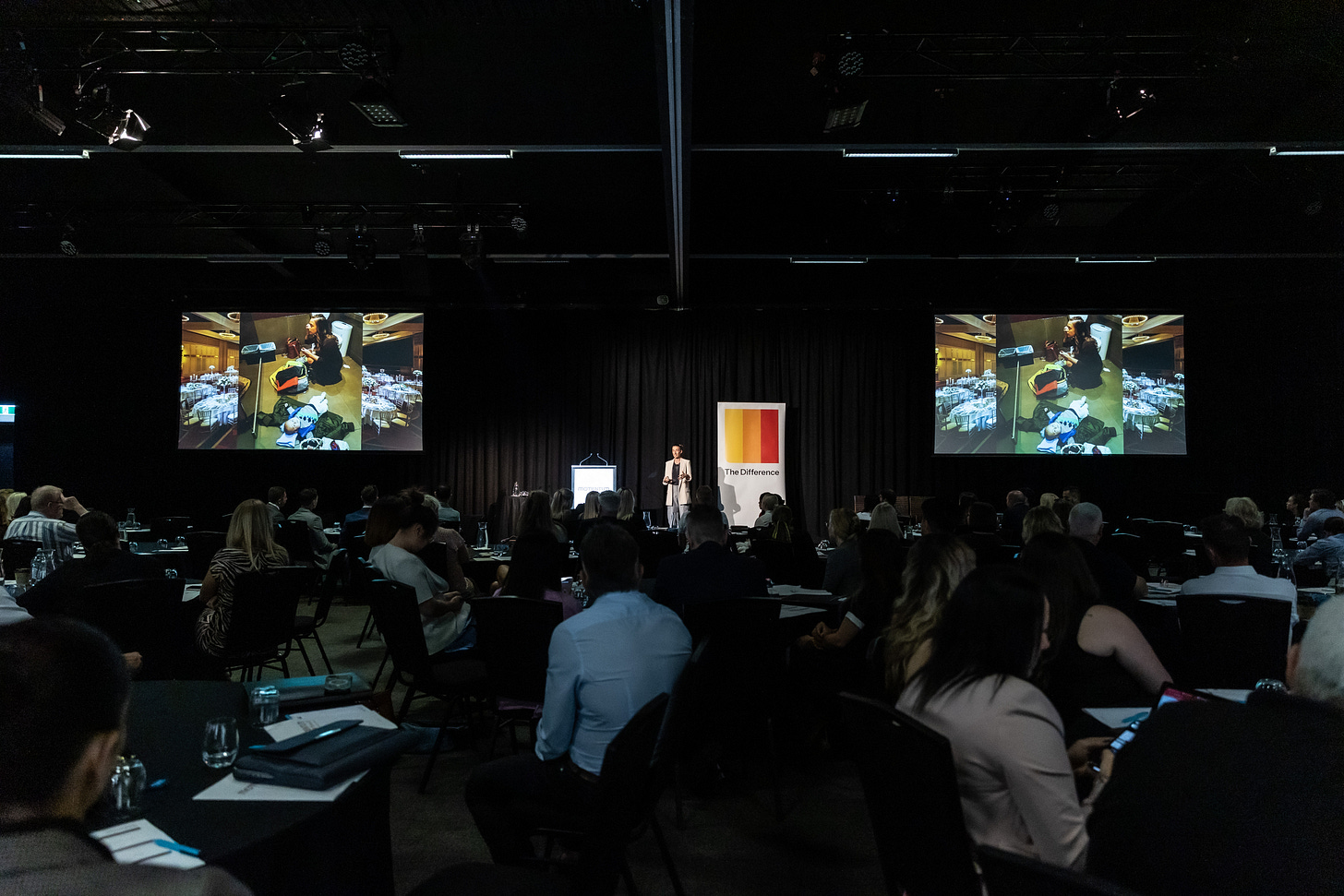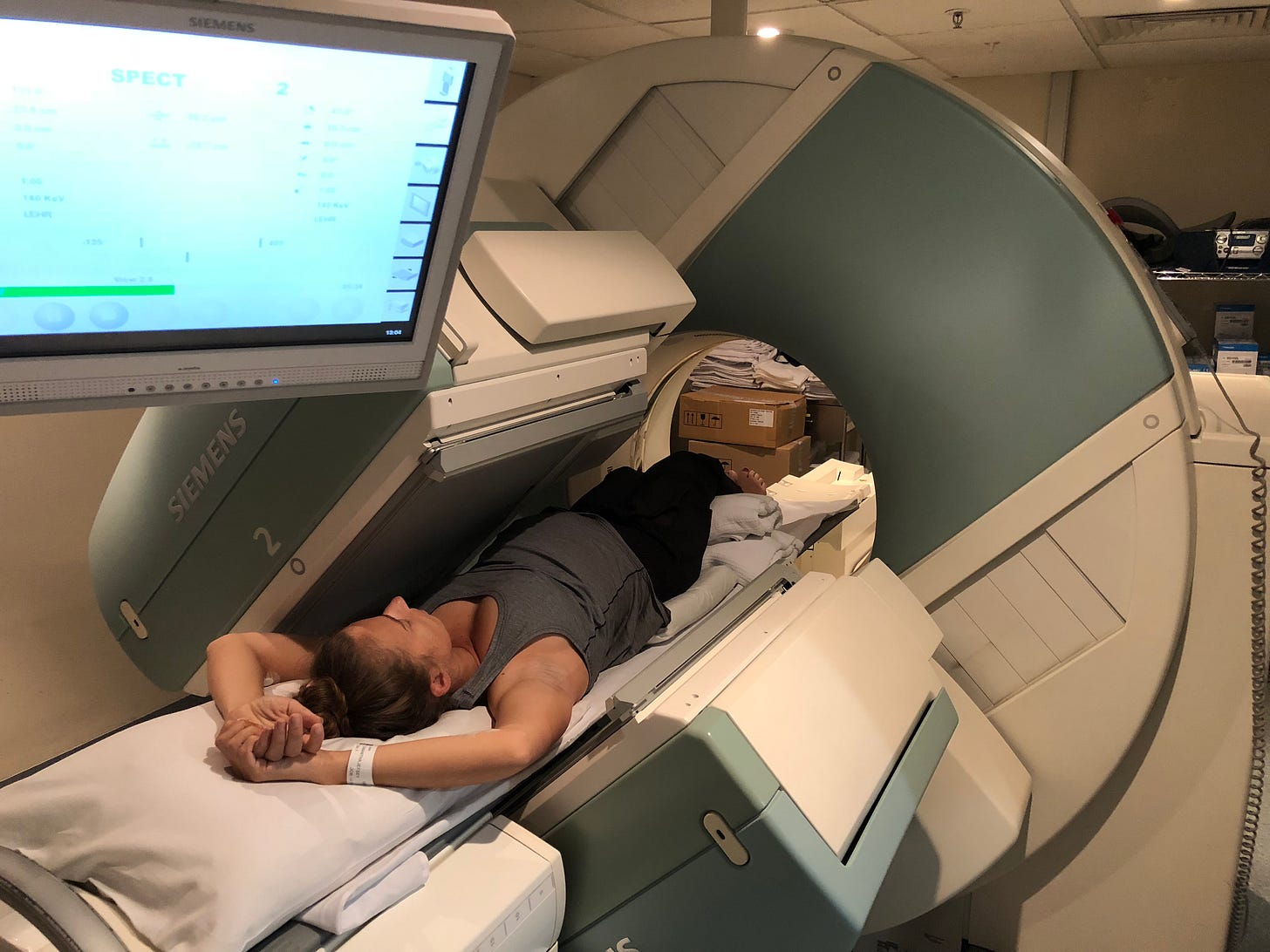When a Voice Doesn’t Land Right Away
On resonance, resistance, and the quiet shifts reshaping leadership. Because not all authority comes dressed the same.
The Myth of Universal Resonance
For a long time, I thought that if someone didn’t resonate with my talk, I’d failed.
I’d walk off stage and replay the moments, wondering what I could shift or soften to land with everyone.
But over time, I’ve realised:
A unique voice can, and quite likely will, feel different.
It might sound less familiar.
More emotional.
More human.
And in a world that often equates authority with polish and sameness, difference can feel like disruption.
But maybe that difference isn’t the flaw.
Maybe it’s the feature.
A Shift in the room
After a recent keynote, someone shared a moment of feedback.
A few of the men in the room hadn’t appeared visually engaged in the opening minutes, heads tilted down, arms crossed, no obvious cues of connection.
But something shifted around the ten minute mark.
I had started speaking about the evolving reality of corporate Australia: how speculative it’s become, and what kind of leadership is required to navigate that ambiguity.
The kind that doesn’t just steady the ship, but brings their team to the edge of the world with them.
Leadership that values adaptability as much as strategy.
That understands how critical psychological safety is: not just as a buzzword, but as the foundation for innovation, trust, and staying the course when the terrain shifts beneath you.
That part landed.
There was clear visual recognition: nods, eye contact, subtle agreement.
In my reflection, not because the message changed, but because it entered through a frame that felt more familiar.
Before that, the room had been still.
That’s when I’d begun with something personal.
Something less expected in a corporate setting.
The Story I Shared
I had spoken about the transition from professional endurance athlete to expectant mother, where I was diagnosed with POTS, a nervous system disorder that affects blood flow.
For months, I didn’t know what was wrong.
I was constantly fainting, unable to stand for long, and losing trust in a body that had once carried me through deserts and mountain ranges.
Hang on...
Perhaps around about now, there were people in the audience thinking:
Wasn’t this meant to be a talk from an elite endurance athlete, someone here to speak about expeditions and physical extremes?
But here’s my truth:
The most enduring lessons from endurance aren’t about distance.
They’re about the thresholds we learn to navigate: physical, emotional, psychological, and the capacity to do so sustainably.
What I’ve come to understand, and what I now speak to, is not just how far we can go, but how well we can carry ourselves, and others — along the way.
When Softness Is the Strength
POTS took my independence in a matter of weeks.
I lost consciousness.
I once lost control of my bowels on the floor of a café.
In a short space of time:
I couldn’t drive
I could barely walk
Running — the thing that had shaped my identity — was gone
And yet, I didn’t panic.
For one of the first times, I didn’t force a plan.
I didn’t hustle my way into a new version of success.
I surrendered.
Not without grief.
But with a surprising sense of peace.
That moment has stayed with me. And I shared that.
Why couldn’t I, why couldn’t we — feel more at ease choosing softness for ourselves?
The kind of softness that resists the urge to push.
That chooses ease, not because it’s easier, but because it’s wiser.
And by kind, I mean anchored
A steady self-respect that lets you soften,
without losing your edge.
Choosing to pause.
To not force.
To trust that your value doesn’t disappear in the stillness.
For years, I had internalised this belief:
If I stopped moving, I’d lose momentum.
And if I lost momentum, I’d lose relevance, maybe even who I was.
But this wasn’t giving up.
It was a shift into a different kind of strength, one that no longer hinged on constant striving.
Because staying on the edge isn’t sustainable.
We need a baseline to return to.
A steady place from which we can choose when to push, why, and what for.
Discomfort Isn’t a Cue to Pivot
Some of the most powerful moments unfold in silence.
I’ve learned not to dilute a story, or its truth, simply because it isn’t instantly affirmed.
That doesn’t mean I’m disconnected from the room.
It means I’m giving it space.
Space to catch up.
To reflect.
To meet me where I am.
Because sometimes, in that pause, something more valuable happens, not immediate agreement, but quiet reflection.
And within that reflection, a mirror:
Of someone’s defaults.
Their unspoken rules.
How they lead others, and themselves.
So perhaps, long after I’ve spoken, something lingers.
A shift in perspective.
An invitation to see differently.
But let’s say, for a moment, that early stillness was disconnection.
Not because the story lacked clarity,
but because it didn’t match the default tone of what leadership is expected to sound like.
Maybe it felt too personal.
Too vulnerable.
Too maternal.
Not enough data.
Not enough edge.
And that’s exactly why I speak to both: strategy and story, performance and person.
Because real leadership doesn’t live in silos.
It’s shaped at the intersection of the personal and the professional.If we only ever speak from the strategic,
we miss the foundation that holds it together.Discomfort isn’t always a reason to pivot.
Sometimes, it’s a signal that the room is being asked to grow.
Reclaiming the Microphone
It’s worth remembering: for a long time, women rarely held the microphone, especially on the main stage.
And when they did, they often adjusted their tone to match what the room expected leadership to sound like, expectations shaped over generations by male dominated standards of authority.
We’ve grown up with narrower models of leadership.
Many of us, both men and women, have absorbed subtle (and not so subtle) cues about what credibility looks like, sounds like, feels like.
So when a woman speaks plainly, personally, or from lived experience, it can still sound unfamiliar.
Not because it lacks substance,
but because we’re still recalibrating whose voices carry authority, and how.
Unfamiliar doesn’t mean unqualified.
And offbeat doesn’t mean off track.
It means we’re expanding.
And as I often remind my son: Being uniquely and honestly you isn’t just brave,
it’s powerful. It’s the most enduring thing you can offer the world.
This is where Part One ends.
And where Part Two: The Question Isn’t will begin.
Want to keep growing together?
Subscribe for honest reflections on endurance, leadership & the mental game — in sport, business & life.






